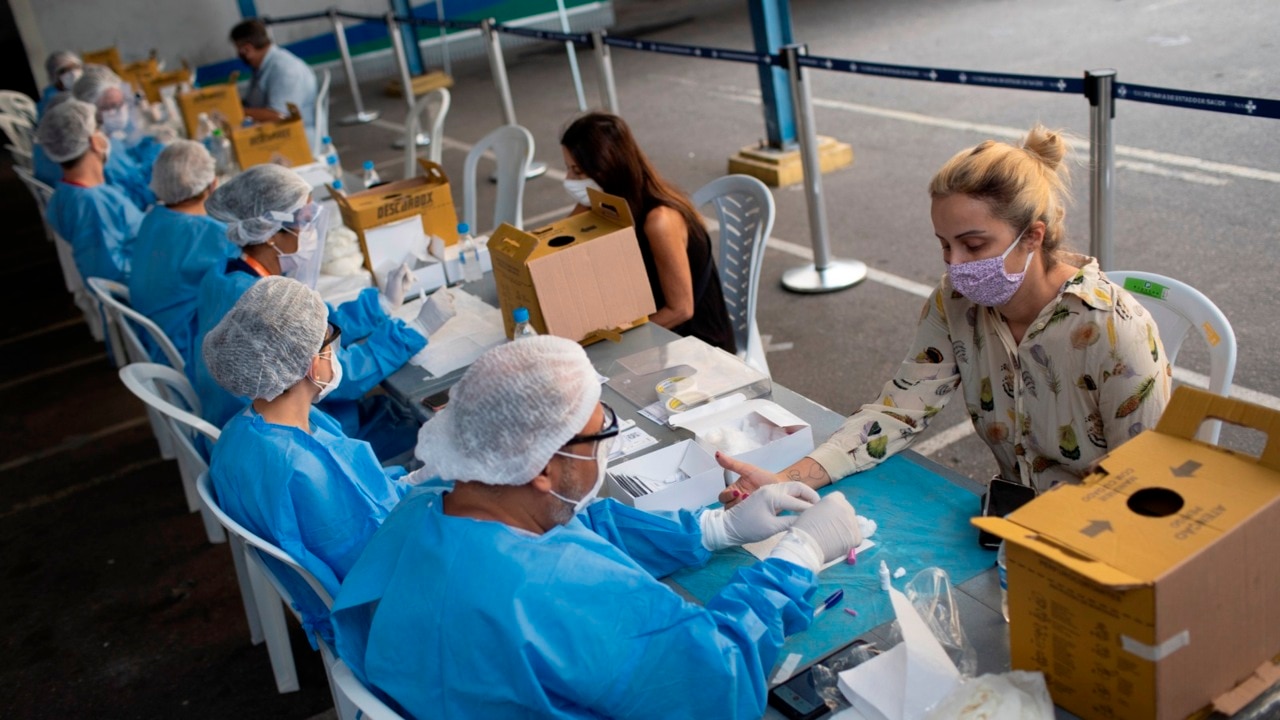What you need to know about Mu, Covid’s latest variant of interest
Experts are closely watching Mu, the latest Covid-19 variant, which has been found in 39 countries and may be able to resist vaccines.

The Mu variant, which has been found in 39 countries so far, is the latest Covid-19 strain being watched by scientists, with concerns it could be vaccine-resistant.
It was first identified in January this year in Colombia. Since then, it has spread to 38 other countries, though, unlike variants of concern such as Delta, case numbers for Mu have not yet exploded.
Named after the twelfth letter of the Greek alphabet, Mu has now been designated by the World Health Organisation (WHO) as a variant of interest (VOI) and is being closely monitored by the global health group.
“There have been a few sporadic reports of cases of the Mu variant,” the August 31 edition of WHO’s weekly epidemiological update reported.
“Some larger outbreaks have been reported from other countries in South America and in Europe.”
A preview study by WHO’s Virus Evolution Working Group said Mu has been detected in Botswana, China, the Democratic Republic of the Congo, the UK, Mauritius, New Zealand, Portugal and Switzerland.


The study said Mu “has a constellation of mutations that indicate potential properties of immune escape”.
This means it may be able to withstand the protection the vaccines deliver, but further studies are needed to understand Mu’s makeup.
The prevalence of the variant is being “interpreted with due consideration” given the low sequencing capacity of most countries.
VARIANTS BEING WATCHED
Also known as B. 1.621, Mu is the fifth VOI being watched by WHO. The others are Eta, Iota, Kappa and Lambda.
It means WHO is has identified the strain “to cause significant community transmission or multiple Covid-19 clusters, in multiple countries with increasing relative prevalence alongside increasing number of cases over time, or other apparent epidemiological impacts to suggest an emerging risk to global public health”.
There are four variants of concern (VOC) as identified by WHO: Alpha, Beta, Gamma and Delta.
The Alpha variant has been detected in 193 countries, Beta in 141, Gamma in 91 and Delta in 170 countries, New Scientist reported.
NUMBERS INCREASING IN COUNTRY OF ORIGIN
At a UN press briefing in Geneva on Tuesday, WHO spokeswoman Dr Margaret Harris said of the Mu variant: “It does not appear that its circulation is increasing.”
WHO said while the worldwide distribution of Mu was dropping, in its country of origin and one bordering nation, numbers were increasing.

“Although the global prevalence of the Mu variant among sequenced cases has declined and is currently below 0.1 per cent, the prevalence in Colombia (39 per cent) and Ecuador (13 per cent) has consistently increased,” WHO said.
“Since its first identification in Colombia in January 2021, there have been a few sporadic reports of cases of the Mu variant and some larger outbreaks have been reported from other countries in South America and in Europe.
“The epidemiology of the Mu variant in South America, particularly with the co-circulation of the Delta variant, will be monitored for changes.”
Preliminary data of the Mu variant showed some similarities to Beta which needed to be confirmed by further studies.
More Coverage
As of August 29, over 4500 sequences of Mu have been uploaded to he global virus genomic data source GISAID from 39 countries.
The reported prevalence should be interpreted with due consideration of sequencing capacities and timeliness of sharing of sequences, both of which vary between countries, WHO said.





